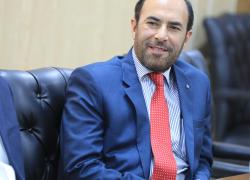Appointment of new Vice Chancellors: Demands urgent attention of the Government in Pakistan
The higher education sector in Pakistan is in deep crisis. At least 51 out of 154 public sector universities across the country, which translates to roughly 33.12% of the total, are functioning without regular Vice Chancellors, a dire situation that raises serious concerns about the efficiency and effectiveness of relevant authorities. Out of these, 27 universities are in Punjab whereas 19 universities are in Khyber Pakhtunkhwa that didn’t have a regular Vice Chancellor. This comes at a time when the sector is already struggling to cope with the lack of funds and a shortage of qualified staff.
Vice Chancellors play a crucial role in providing strategic direction and leadership to universities. Without a competent leader at the helm, institutions may struggle to formulate and implement long-term plans and goals. The absence of regular Vice Chancellors in so many public sector universities in the country, at one point in time, is unprecedented and deeply troubling.
Being the Chief Executive and Principal Accounting Officer, this position is crucial for smooth functioning of the institutions of higher education and their absence incessantly have a significant impact on the administrative and academic affairs besides quality of education and research being undertaken at these seats of advanced learning.
The Vice Chancellor, used to be the chairman of major decision making bodies such as Syndicate, Academic Council and Selection Board, is responsible for all administrative, academic and financial functioning of the university. This also raises concerns about the financial stability and governance of these universities.
This state of affairs is particularly alarming given that the higher education sector is already facing numerous challenges. Lack of funding has led to a decline in the quality of education while persistent shortage of qualified staff in the face of ban imposed by the government on new recruitment, from time to time, has made it difficult for these universities to attract and retain top talent. This has had a negative impact on the overall reputation of the sector, both domestically as well internationally. This situation presents various challenges and implications for the higher education sector in the country. Here are some underlying reasons for this issue and its potential implications:
Reasons for delay in appointment of regular Vice Chancellors:
Various factors played a part in this uncalled for delay. To begin with, unwarranted delay in advertising these positions as in some cases, the tenure of regular Vice Chancellors had expired over a year ago, while in other universities these position got vacant relatively recently. Similarly, three new universities were established by the Government of Punjab, recently, also required appointment of permanent Vice Chancellors, further aggravating the situation.
Apart from this, the entire process of appointment of regular Vice Chancellors in public sector Universities in Punjab was halted after four writ petitions were filed in Lahore High Court, challenging the authority of the caretaker government to make appointments against these regular positions.
In the case of Khyber Pakhtunkhwa, the matter of delay in the process of appointment of regular Vice Chancellors in the universities involves new layers of intricacy as the Chairman of the five-strong high-powered Academic Search Committee, the noted educationist and former Chairman Higher Education Commission, Prof Atta-ur-Rehman resigned from the chairmanship of the committee as a protest for the repeated cancellation of the scheduled interviews for the said positions. Two other members, including Prof Arif Nazir Butt and Prof Iqbal Chaudhry also followed the suit. It was learnt that the delay in the interview processes caused, mainly, by a stay order issued by the court of law and the directives issued by the Governor’s Secretariat in this respect made the said members apprehensive over the matter.
As the quorum required all members of the committee to be present in its meeting to make recommendations of the prospective candidates for the said posts, the absence of three members made it virtually impossible hence the panel couldn’t meet.
This further delayed the process as the Academic Search Committee had to be reconstituted as Section 12(2) of the law stipulates that an Academic Search Committee, for the recommendation of persons suitable for appointment as Vice-Chancellor, shall be constituted by the Chancellor on the advice of the Government.
This situation was further acerbated by the moratorium imposed by the Election Commission of Pakistan which stated that the caretaker government was not authorised to make appointments on regular posts as per the Election Act, 2017.
Implications of the delay in appointment of regular Vice Chancellors
The situation raised serious concerns about the academic and administrative difficulties faced by these universities in the absence of regular Vice Chancellors .
Majority of Khyber Pakhtunkhwa’s public universities grapple with financial and administrative challenges as the appointment of permanent Vice-Chancellors remained stalled despite several months passing since the initial advertisement.
The newly established universities in Punjab are running without a full time Vice Chancellor making it cumbersome for the Acting Vice Chancellors to run the show efficiently. The absence of regular Vice Chancellors led to a stagnation of vital administrative and academic matters within the universities, hampering their ability to fulfil their academic missions effectively. This delay is not only detrimental to the universities’ functioning but also undermines the overall educational landscape in the region.
The absence of a permanent Vice Chancellors always create a leadership vacuum, impacting strategic decision-making, faculty morale and overall university development.
The delay in appointing Vice Chancellors at Pakistan’s universities has escalated into a significant crisis with a staggering one-third of the institutions of higher education currently operating without permanent leadership. This situation has adversely affected eminent universities in the capital including Quaid-i-Azam University, Allama Iqbal Open University and International Islamic University Islamabad, where these positions have been vacant since November 2023.
Dr Mukhtar Ahmed, the Chairman Higher Education Commission (HEC), as reported in a section of the press, was alarmed over the situation of the universities working without regular VCs.
Teachers’ associations from these universities voiced serious concern over the prolonged delay, citing inability of the Acting Vice Chancellors to make key administrative and financial decisions in the absence of permanent Vice-Chancellors. The most perturbing is the fact that despite completion of the selection process, these critically important positions remain vacant, significantly impacting the operations and progress of these esteemed institutions.
The directives issued by the relevant authorities such as Higher Education Department and Governor’s Secretariat, from time to time, restraining universities without permanent Vice Chancellors or the Vice Chancellors who are left with less than six months in their tenure, from making major decisions having administrative as well as financial implications is the source of continuing nuisance for these universities.
What the government should do to address the situation?
As a matter of fact, the appointment process of regular Vice Chancellors in several public sector universities in the country is in the advanced stage and since new governments in all the provinces have been formed whereas at the center it will take a day or two, it is abundantly clear that an urgent action is needed to address the issue. Three important areas demand prompt and immediate attention of the people at the helm of affairs:
- The provincial governments and relevant authorities must take immediate steps to appoint regular Vice Chancellors in these universities. This situation necessitates addressing the root causes of the delays and ensuring a transparent, merit-based, and efficient process for appointing qualified individuals as Vice-Chancellors. This will be crucial for fostering stability, effective leadership, and ultimately, the academic excellence of Pakistani universities. This will not only help stabilize the institutions, but will also ensure that they are able to provide quality education and conduct research of international standards.
- Furthermore, efforts must be made to increase funding for the higher education sector. The universities with poor financial health must be provided sufficient funds as committed by the respective governments in their election manifestos.
- Finally yet importantly, the provincial governments should remove ban on fresh recruitment in public sector universities as these academic bodies suffered tremendously, on this particular account due to insistent bans imposed by the government as well as Election Commission of Pakistan. The HEC must also push and sensitize the relevant authorities about this important issue.
This will help attract and retain qualified staff, improve infrastructure and enhance overall quality of education. It is only through such measures that we can hope to address the challenges facing the sector and ensure that our universities are able to compete on the global stage. Delaying these appointments only exacerbates the challenges faced by the academic community and impedes progress of higher education in the country.
Conclusion:
Universities are engines of socio-economic development of a country and play a crucial role in the intellectual development of its future leaders. The ongoing debacle underscores the need for new government to prioritize the appointment of qualified Vice Chancellors to restore academic standards and research output. It is imperative for all stakeholders to reaffirm their commitment to education and take decisive action to prevent further damage to the nation’s academic standing and global competitiveness.








